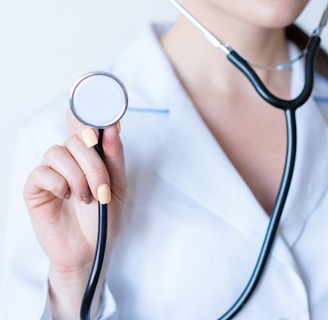Health Precautions Every Traveler Should Take for a Safe and Enjoyable Journey
Traveling is to great voyages, but health is the principal factor in travel enjoyment. This blog offers an informative guide to some important health precautions every traveler should observe. Learn how to prepare for your trip with vaccinations, hygiene tips, and a well-stocked first aid kit. Find out ways to prevent common travel issues like motion sickness, jet lag, and traveler's diarrhea. Whether you're looking at self-discovery, family exploration, or just pure adrenaline, the tips herein are quite functional; they'll keep you safe and ready for every single moment of enjoyment. Be informed, be prepared, and make your travels as healthy as they are memorable!
The Traveled for You Team
12/30/20246 min read


Health Precautions Every Traveler Should Take for a Safe and Enjoyable Journey
Traveling is one of life’s greatest joys, offering new experiences, cultures, and landscapes. However, whether you're planning a short getaway or a globe-trotting adventure, maintaining your health is crucial. Travelers often encounter unfamiliar environments, changing climates, and different healthcare systems, all of which pose potential health risks. To ensure a safe and fulfilling trip, here’s a comprehensive guide on health precautions every traveler should take.
1. Pre-Travel Preparation
Research Your Destination
Begin by researching your destination. Look for potential health risks such as common diseases, required vaccinations, and environmental factors such as high altitudes or extreme weather. Reliable sources of information include government health websites, the CDC, and WHO.
Schedule a Health Check-Up
Book an appointment with your doctor or travel health clinic at least 6–8 weeks before your trip. Discuss any necessary vaccinations, such as yellow fever or hepatitis, and preventative measures, including antimalarial medication. Ask how to manage pre-existing conditions while traveling.
Get Comprehensive Travel Insurance
Invest in travel insurance covering medical emergencies, evacuations, and trip disruptions; be sure to review the policy to ensure it covers all the destinations listed on your itinerary. Proper insurance brings peace of mind while you're enjoying your journey.
2. Vaccinations and Preventive Medications
Vaccination and Preventive Care for Travelers
Protect yourself with needed vaccinations and preventive medications.
Core Vaccines:
Keep up to date on routine immunizations, including measles, mumps, and rubella (MMR), tetanus, and annual flu shots, as these create a vital health foundation.
Destination-Specific Vaccines:
Check vaccine requirements for your destination. Examples: Yellow Fever is needed if traveling to parts of Africa and South America. Japanese Encephalitis is recommended if traveling to rural areas in Asia. Typhoid and Hepatitis A protect against diseases related to unsafe food and water in high-risk areas.
Preventive Medications:
If traveling to malaria-prone areas, take antimalarial drugs. Take care of common travel ailments by packing medications for diarrhea, such as loperamide or rehydration salts.
Consult a health professional well in advance of departure to ensure that all health precautions are taken. Stay informed and travel safely!
3. Hygiene and Sanitation Practices
Good hygiene practice prevents many diseases, including the majority of gastrointestinal infections
Hand hygiene: Frequent hand washing with soap and water is necessary before eating and after using public transport. An alcohol hand rub can be carried so one can clean their hands if soap is not available.
Food and Water Safety: Use bottled or filtered water to avoid waterborne diseases and, if uncertain of the water source, avoid using ice cubes. Food choices—beware of street food and raw dishes, unless its preparation standards can be trusted. Opt for peeled fruits and fully cooked meals in order to avoid possible contamination.
By following these basic but effective hygiene practices, you can go a long way in reducing the risk of infection and remaining generally healthy, particularly when visiting areas where sanitation may be questionable.
4. Packing Essentials for Health
Travel First Aid Kit
Pack a well-stocked first aid kit for emergencies. Include basic pain relievers, such as ibuprofen or paracetamol, to take care of headaches or minor aches. Add bandages, gauze, and antiseptic cream for wound care, along with a thermometer to monitor fevers. Motion sickness remedies are also important for comfort during travel.
Prescription Medications
Bring enough of your prescribed medications, in their original packaging so they are easily identified. In case you have problems at customs, bring a doctor's note explaining your prescriptions, especially for medications that may be restricted in your destination country.
Health Accessories
Pack health-supporting accessories like a reusable water bottle with a built-in filter to stay hydrated safely. Protect your skin with sunscreen (SPF 30 or higher) and lip balm containing UV protection. To prevent insect bites, carry insect repellents with DEET or Picaridin for effective coverage.
With these items, you’ll be prepared for common health concerns, ensuring a safer and more comfortable journey.
5. Stay Safe During Travel
Insect Protection
Protect yourself from insect-borne diseases like malaria and dengue by wearing long-sleeved clothing, especially in areas where these illnesses are prevalent. Use sprays containing DEET or other effective agents to minimize bites. When staying in rural or tropical regions, sleep under treated mosquito nets to safeguard against nocturnal bites, ensuring a restful and safe night.
Avoid Overexertion
Maintain a steady pace when engaging in activities, particularly in hot climates or high-altitude locations, to prevent fatigue or altitude sickness. Listen to your body and take breaks as needed. Staying hydrated is essential; drink plenty of water to avoid heatstroke or dehydration, especially when exposed to intense physical exertion or direct sunlight.
Limit Alcohol and Unsafe Activities
Refrain from excessive alcohol consumption, which may impair judgment and result in accidents. The tendency to act recklessly or seek excitement can also cause preventable injuries while traveling through unfamiliar territories. Always ensure that safety and security come first, before a moment's excitement, and any adventure you undertake should be within reasonable and safe limits. Moderation is, therefore, the path toward fun and a secure vacation.
6. Dealing With Travel-Related Health Issues
Motion Sickness
To reduce motion sickness, take stable seating positions like near the wings of a plane or the front of a bus. Try over-the-counter remedies like Dramamine or natural remedies like ginger.
Jet Lag
Combat jet lag by adjusting your sleep schedule before your trip to match your destination's time zone. During flights, stay hydrated and avoid heavy meals to help your body adjust more easily.
Traveler's Diarrhea
If affected by traveler's diarrhea, use oral rehydration salts to prevent dehydration. Stick to bland and easily digestible foods until you recover, avoiding rich or spicy dishes that may irritate your stomach further.
Sunburn and Heatstroke
Protect yourself from sunburn and heatstroke with wide-brimmed hats and sunglasses. Take regular breaks in shaded areas, and stay hydrated with electrolyte-rich fluids to maintain balance in extreme heat.
Just follow these simple measures, and you can genuinely enjoy your travels while keeping up with health and comfort.
7. Mental Health During Travel
Travel can be stressful, especially if plans don’t go as expected. Protecting your mental well-being is as important as physical health.
Manage Travel Anxiety
While travel is very exciting, it may also instigate anxiety. To dispel stress, try doing some mindfulness techniques, such as deep-breathing exercises or meditation, to calm your mind and help it focus. Another great way to reduce anxiety is through planning. Plan ahead to avoid the stress of making last-minute decisions. Having a clear plan gives one control and peace of mind, leaving room for spontaneity.
Stay Connected
Traveling alone can get lonely sometimes. Keep in touch with loved ones to fight loneliness. You can overcome the feeling of isolation by keeping in touch through regular phone calls, video chats, or even sharing updates with friends and family. Keeping these connections alive ensures you're not entirely alone, even while exploring new destinations.
Take Breaks
Resist the temptation to fill your day with activity after activity, leaving no breathing space. Your body and mind get terribly tired, making the whole thing a drag. You have to intersperse some downtime in between for rest, rejuvenation, and relishing your experiences. Relaxation time keeps you energetic and alive in the present.
Overcome the challenges of anxiety, stay in touch, and take breaks. These are a few pointers to make your travels fun and rewarding.
8. Health Tips for Different Types of Travelers
Safety first for Solo Travelers: Keep somebody informed of your whereabouts and travel plans; make sure that a trusted person is aware of your itinerary. Carry with you at all times emergency contacts, including local authorities and close family or friends, in case of quick assistance.
Family Travelers should prioritize preparation for children. Pack essentials like child-friendly medications, including fever reducers and allergy remedies, as well as ample snacks to keep them comfortable during the journey. Additionally, research pediatric healthcare facilities at your destination beforehand to ensure prompt medical care in case of any emergencies.
Safety should be on top of the list for any Adventure Traveler. The activities chosen must be carried out while wearing proper protection: helmets in trekking and wetsuits in diving, to name a few. The risk of altitude sickness must be prevented when one reaches high altitudes through acclimatization and good hydration.
With these customized tips, travelers of all kinds can have a safer, more enjoyable journey. Whether traveling solo, with family, or in search of extreme adventure, the key to maximizing a travel experience is in the preparation.
9. Post-Travel Health Precautions
After returning from a trip, be alert to fever, diarrhea, or skin rashes that may signal diseases contracted during travel. Early detection and treatment are possible with immediate attention to any unusual changes in your health.
Should the symptoms persist or get worse, especially after traveling through high-risk areas, it is important to visit the doctor without further ado. A timely visit to the doctor ensures proper diagnosis and care, reducing potential complications.
It is also good to share your travel experiences. Sharing how you coped and what health precautions you had taken while on the road may inspire others to be more careful with their health while traveling. Your lessons learned could help others be informed and protected on their own adventures.
Keeping tabs on symptoms, consulting professionals when needed, and enlightening others are simple yet effective ways of ensuring a safe and healthy travel experience.
Conclusion
Healthy travel is easy with a little preparation. The planning of the trip, packing of essentials, and keeping good hygiene can greatly reduce the risks and enhance enjoyment. These aren't tips, but a combination of steps that are very critical to a safe and fulfilling journey. Approach your adventures with confidence, knowing that taking care of your health enhances every experience. A well-prepared traveler is a happy one—ready to get the most out of each moment.
Inspiring travel stories and practical tips await you.
Wanderlust
Adventure
contact@traveledforyou.com
© 2024. All rights reserved.
